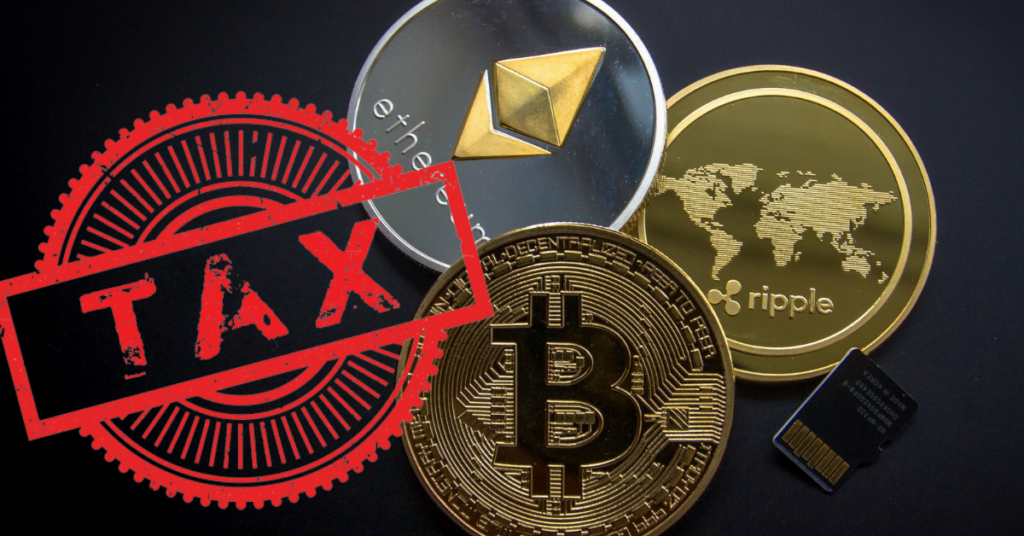Tax on cryptocurrencies in India will be effective from April 1st as Loksabha has recently passed the Finance Bill 2022 which includes new “Crypto Tax” laws as well. These proposed taxes on virtual digital assets (VDA) will come into an effect from the beginning of the new financial year.
Virtual digital assets (VDA) include private cryptocurrencies and NFTs (non-fungible tokens) which have recently gained huge popularity amongst Indian investors.
As per the finance bill 2022, VDA could be any information or code or number, or token generated through cryptographic means or otherwise and can be transferred, stored, or traded electronically.
From April 1st, 2022, 30% tax will be applicable on the profit generated from virtual currencies regardless of any long-term or short-term holding by investors.
1% TDS (Tax deducted at source) will be applicable on each transaction related to virtual digital assets irrespective of profit or loss. This law will come into effect in July starting.
Tax on Crypto in India – Key Takeaways
- 30 % flat tax on capital gain from virtual assets/crypto (effective from April 1st)
- 1% TDS on every transaction (effective from July onwards)
- No deductions
- No Loss Setoffs
What are the Crypto Taxes in India?
Finance bill 2022 has brought much clarity on the income tax regulation over cryptos and other virtual assets. This will help investors to think loud and clear before making any further investments in VDAs; especially in cryptocurrencies.
Let’s understand them thoroughly.
30 % Tax on Capital Gains
In finance bill 2022, the government has stated that virtual digital assets has gained huge popularity in recent time and are traded in heavy volume. The frequency of these transactions has made it imperative to provide for a specific tax regime.
The government has imposed a 30% tax on the income generated from the transfer of crypto assets.
According to the income tax act, the meaning of “transfer” related to capital assets is – Sale, Exchange, or relinquishment of the asset.
This means a 30% flat tax will be applicable only if you have sold crypto assets, exchanged crypto, or relinquished crypto (which means you have voluntarily given all the rights of your crypto assets to somebody else).
1 % TDS on every Transaction/Trading
1% TDS (Tax deducted at source) will be applicable on each transaction related to virtual currencies beyond Rs. 10000 in a year.
The threshold limit for TDS would be Rs 50,000 a year for specified persons, which includes individuals/HUFs who are required to audit their accounts under the I-T Act.
Gifting virtual digital assets will also be taxable in the hands of the recipient.
No deduction
The government also announced that tax deduction will not be allowed in respect of any expenditure (for example – mining infrastructure) or allowance while computing the income except for the purchasing cost.
No Loss Set Off
A loss from one crypto asset cannot be covered or set off against the income generated through another crypto asset.
For example – If an investor incurs losses during a crypto asset transaction; that loss cannot be covered by the profit generated through another virtual digital asset.
Also Read – Cryptocurrency Guide 2022 – Things You Should Know Before Diving Deep
How 30% Crypto Tax is Calculated?
Let’s take an example –
Suppose you have bought cryptos for Rs. 30000 and sold those cryptos for Rs. 70000.
Profit generated from selling cryptos = Selling price – Cost of Acquisition = 70000 – 30000 = 40000
Now 30% tax will be applicable on profit generated from crypto selling ie on Rs. 40000.
Tax Calculation = 40000 * 30/100 = 12000 Rs.
You will have to pay an Income Tax of Rs.12000 on the above crypto transaction.
You can use the ClearTax crypto calculator to calculate accurate crypto taxes.
Central Bank Digital Currency Vs Virtual Digital Assets
In a post budget media interaction, Finance minister Nirmala Sitharaman clarified that a currency is a currency only when it is issued by the central bank, even if it is a crypto. Anything outside of that loosely we refer it to be cryptocurrency but they are not currencies.
The government has imposed a tax only on the virtual assets which have been created by individuals or private organizations (group of people); not on the RBI-backed digital currency which is soon going to launch in India.
Also Read – What is India’s Central Bank Digital Currency?
How Crypto Experts are reacting to the new Crypto Tax Law?
New crypto tax rules have created a chaotic situation amongst Indian cryptocurrency investors. They are in dilemma whether to hold or book profit or loss before the new crypto laws kick in.
As per the new crypto law, investors won’t be able to set off their one crypto loss against the income bagged from another crypto from April 1st. With the given fact, they can at least settle their losses with another crypto asset gains before 31st March.
Crypto experts have raised concern over the proposed crypto tax rules. They have mentioned that higher tax rates will prevent investors to explore new potential growth opportunities in the Indian crypto market and push them back to the stock market considering a safer option compared to this.
Also, these laws will majorly affect small retail investors who come under lower tax brackets or have been relying on lower capital gains tax rates.
WazirX founder Nischal Shetty stated that “The one percent TDS will kill liquidity, which means ultimately profitability goes down for everyone. It’s a lose-lose”
He had tweeted earlier over the proposed crypto tax law,

He said that proposed crypto laws would cripple traders and prevent them from investing in the crypto market due to a lack of capital. This will drastically reduce the potential to earn profit.
Conclusion
It’s pretty clear that government wants to tighten its grip over the crypto industry. Virtual digital asset (VDA) laws would majorly affect the crypto industry. But to what extent, this can only be seen after its implementation.
Crypto Tax in India FAQ
What is a virtual digital asset (VDA)?
According to Finance Bill 2022, VDA could be any information or code or number, or token which can be transferred, stored, or traded electronically.
How is crypto taxed in India?
As per the recent crypto tax bill, 30% flat tax will be applicable on the profit gained from the transfer of crypto assets, and 1% TDS will be applicable on each transaction related to cryptocurrency.
Do I pay taxes on crypto if I don’t sell?
No, you do not have to pay taxes if you are not selling cryptos. You can hold and buy cryptos without paying taxes. Taxes will be only applicable if you do any activity related to the transfer of crypto assets which includes crypto selling, crypto exchange, etc.
What happens if I don’t pay crypto taxes?
In this scenario, you could be booked for tax fraud or evasion and may face charges and penalties decided by the government for this type of activity.
Related Article – What is Digital Currency & How Does it Work?

